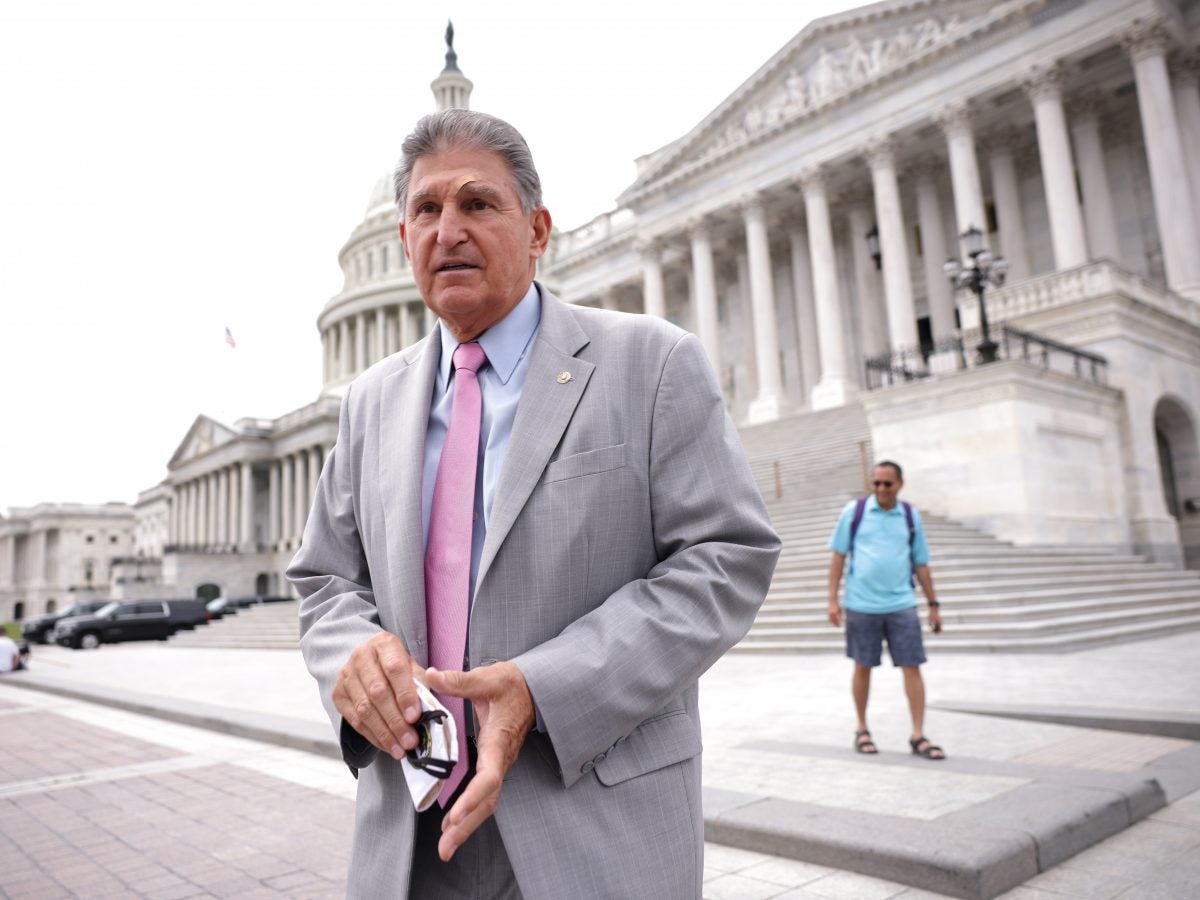
It’s hard to say where to start with the following news. Whether it’s that Joe Manchin was the only Democrat to support an anti- “Critical Race Theory” amendment introduced by GOP Senator Tom Cotton (R-Arkansas), who’s had a personal vendetta for over a year with those who even mention American racism. Or the fact that the bill has nothing to do with Critical Race Theory but is being described as such by clueless Republicans. Or that this bill actually passed the Senate.
Let’s just start from the top.
Joe Manchin is continuing to operate as an actual Republican, this time joining 49 Republican senators Wednesday to pass an amendment that defunds “Critical Race Theory.”
The amendment would prohibit or limit “federal funding from being used to promote critical race theory or compel teachers or students to affirm critical race theory in prekindergarten programs, elementary schools, and secondary schools.”
The problem with this, as some may have heard by now, is that Critical Race Theory is an advanced field of scholarship that’s rarely taught outside of graduate school. It’s a relatively niche field that started among lawyers in the 1970s. If it’s taught at all in graduate school, it’s most often in law schools (that’s where I was first educated in it) and some graduate schools in other fields, like education. And even most law school students would say they never came across CRT in their years of legal training.
Critical race theory is an advanced course of scholarship that began to examine why legal decisions– like Brown v. Board of Education– did not actually result in substantive racial progress. It challenged the notion that the law was color blind and theorized that the law could, and did in fact, maintain racial hierarchies and white power structures. Experts in the field– like Kimberle Williams Crenshaw, Patricia Williams, and Kendall Thomas– found inspiration through the work of Harvard law professor Derrick Bell, whose teachings were foundational to the development of CRT.
Rather than teaching about individual lay-people’s roles in advancing racism, CRT is specifically focused on institutions and how those in power use the law and other means to maintain racial hierarchies. It doesn’t teach people to be racially divided; it shows how systemic decisions and practices throughout America’s legal and social institutions continue to do that work all on their own. CRT scholars also examine how to curb this systemic racism.
But you wouldn’t know this from the flurry of PTA meetings throughout the country, with white parents lamenting the hostile takeover of “critical race theory,” frantic that their 10-year-old sons and daughters are being taught white guilt.
There are multiple facets to CRT that cannot be whittled down to “teaching about American racism,” but you can be assured it’s not a field of scholarship taught in anything below college-level courses. It’s like thinking kindergarteners are learning calculus. While kids can and should learn the building blocks of math, to call addition and subtraction calculus simply because they involve numbers is deceptive. But that’s precisely what the rightwing fury is about. It’s not meant to be accurate; it’s meant to stir the fury of their base.
Indeed some children may be learning about racism in school. But simply learning about racism isn’t CRT. Some students may be learning about Jim Crow or white supremacy. But this is just called history. CRT is a distinct body of work, and if legislators just want to ban history that makes America appear less than stellar, they should just say that.
And in the meantime, they should also avoid using the term “cancel culture” to describe being censored ever again, because these right wing legislators are using their actual power and resources to systemically block learning for millions of students. If anything, this simply adds another lesson to the curriculum for CRT scholars to show why their field of study was created in the first place.